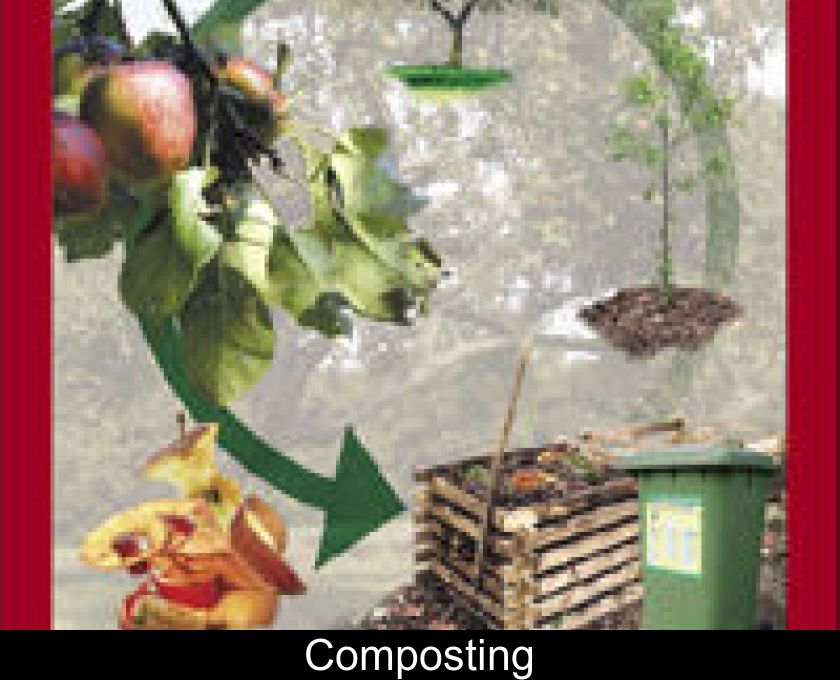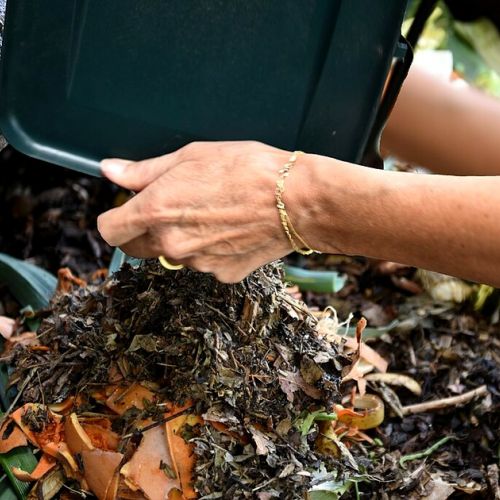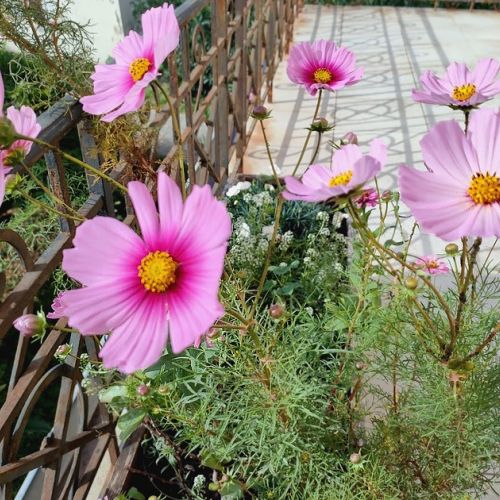Composting
This technique, which aims to transform kitchen and garden waste into a kind of humus, compost, by letting it decompose under the action of microorganisms has many benefits for your garden and the environment.
The benefits
Compost is a 100% natural and excellent quality fertilizer. It lightens the soil and allows for savings on fertilizers, soil and water.
Composting is also a significant ecological gesture as it reduces household waste by 30 to 40%. It diverts organic waste from collection and processing, resulting in less pollution and reduced costs. Composting is therefore an excellent means of valorizing organic waste from both a technical and ecological perspective.
Waste to be used.
Nitrogenous waste: plant waste, gardening waste (hedge trimmings, lawn clippings...), green leaves, perishable household waste (vegetable and fruit waste).
- Carbonaceous waste: shredded branches, dead leaves, straw
- Used coffee grounds with filter, eggshells
- Biodegradable litter from herbivorous animals
- Pieces of 100% natural fabric (wool, cotton)
Not compostable: fatty products, ashes, meat, fish, cheese remains, nutshells, animal litter and excrement. And among garden waste, diseased plants, recently treated plants, clippings containing seeded plants, and rhubarb leaves are not compostable.
The different techniques.
The most common method is heap composting, which allows for composting large quantities and facilitates handling. However, open-air waste can attract animals and is not very aesthetically pleasing. Heap composting is particularly suitable for large gardens.
Waste can also be stored in a wooden or plastic bin of varying size and shape. This technique is suitable for small gardens and mainly food waste. It avoids nuisances and allows for faster decomposition, but handling can be difficult.
Surface composting involves spreading mowed grass and certain shredded garden waste on the ground. It is reserved for green waste and must be applied with caution, as some fragile plants may suffer from it.
Practical tips for successful composting.
- Fragment waste into small pieces, especially woody waste, and incorporate gradually.
- Mix "carbon" waste, dry and structural (woody garden waste) and "nitrogen" waste, wet and soft (kitchen waste, grass clippings, fresh leaves).
- Aerate and stir every 3 or 4 weeks to provide oxygen and control moisture. Aeration is an essential factor for successful composting.
If the compost is too dry: stir and water at the same time, increase the proportion of nitrogen waste.
If the compost is too wet (shiny, sticky, odorous): stir, incorporate "carbon" waste.
- Do not use insecticides as they may kill all the useful living organisms in the compost...
It is also recommended to protect the fermenting compost from excessive rain or drying out from wind and Sun with a tarp or canopy.






